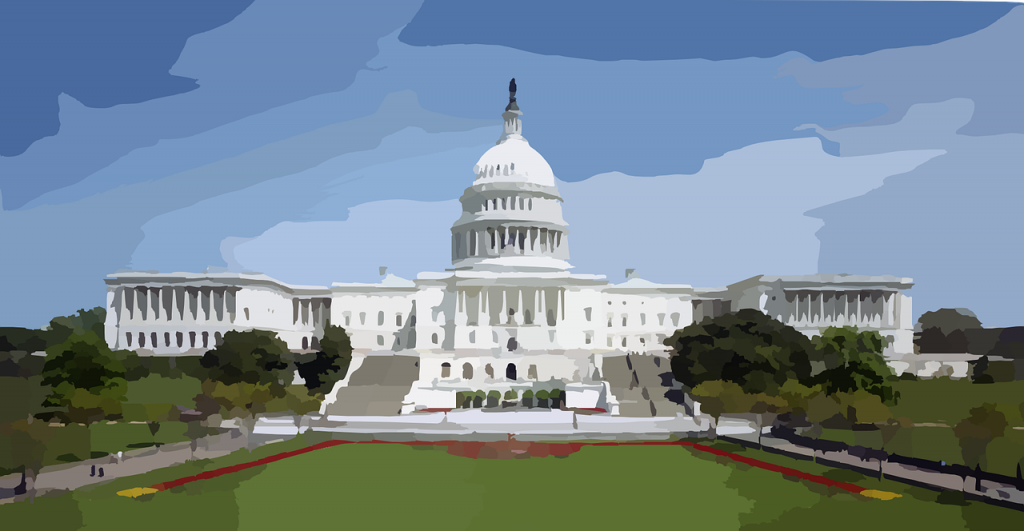
The Economy and a New Tax Bill Dominates News from Washington
By Dani Kehoe, Counsel to NAIFA
Last week, after just two weeks of working on it and in an impressive show of nonpartisanship, Congress and the President agreed on an emergency funding bill to address the public health crisis caused by the coronavirus. That $8.3 billion measure (un-offset) is now law. Now, attention is turning to what/whether Congress and the Administration can do to help with the economic impact. Here’s what people are thinking/proposing.
The Economy: The volatile stock market, reports of canceled conventions and other large-group events, travel stoppages, and signs of the population “hunkering down” (i.e., stopping spending money) have Congress, and the President concerned about the economy. The public health funding was, it appears, but a first step in response. Now, there are other ideas percolating, including a tax bill (more on that below), and a proposal to require employers to provide 14 “extra” days of paid sick leave (including a rule that would allow them to be used by people who are self-quarantining due to having been exposed to someone who came down with COVID-19), along with a mandate that employers allow their workers to earn at least seven days of paid sick leave. No doubt, more proposals will emerge next week.
It’s too soon to tell whether Congress will enact any of these proposals, but it is certain that debate on them will preoccupy lawmakers (and the Administration) at least until the economy shows signs of stabilizing. We’re keeping a very close watch as things develop.
Tax: It appears a coronavirus-response tax bill may be taking shape—fueled largely by a widespread feeling on Capitol Hill and in the White House that the reeling airlines/travel and hospitality/entertainment industries are in need of quick help. There’s talk of suspending various airline taxes, and tax credits for small businesses. There’s also talk of a payroll tax cut for individuals. So far, nothing concrete has come together—just lots of trial balloon-type ideas being tossed around. But it does seem to be a serious initiative—people on the hill have even started calling it the “airlines tax bill.”
If history is any guide, there will be many an effort to add to this tax bill, if in fact, it comes together—especially since at the moment many in Congress do not seem to think the costs of any anti-coronavirus legislation require offsetting. (Some lawmakers, do, however, think new tax benefits should be offset.) Again, it’s too soon to tell whether any of these efforts might succeed—it can be argued either way.
There are some tax issues of interest to the life insurance/financial services industry that could get caught up in what could be a “tax vortex” over the next few weeks. (But, it is also possible that this will all come to nothing.) We’ll keep you posted as things develop.
In addition, there is an unrelated tax issue is catching the attention of Congressional tax writers: Sen. Bernie Sanders (I-VT), who is, as you know, running for the Democratic nomination for president, has proposed changing the tax rules governing nonqualified deferred compensation (NQDC). Under his proposal, NQDC benefits would be taxed when they vest, not when they are paid. Most technical tax-writing staff think this proposal is overbroad, and point to Senators’ and Members’ “nervousness” over the potential impact on “middle management.” But the proposal is clearly on the tax writers’ radar scopes.
Were it not for the potential emergence of an “airlines tax bill,” it would be easy to predict that nothing would happen with this NQDC proposal until after the November elections, if then. However, with the possibility of a tax bill in response to the unrest in the economy, it’s something we need to watch very carefully. Of course, we will do just that and will keep you informed.
Health: There’s even more focus on finding a solution to the surprise billing and prescription cost control bills—but no breakthrough’s as of yet. These issues are to a degree caught up in the coronavirus response debate, but generally are moving separately—and may find themselves taking a back seat to more targeted coronavirus/economy response proposals.
Retirement Savings: The pace of meetings on how to solve the Union/Labor pension plan problem (the “multi’s” issue), and on what to include in a second-generation retirement savings bill (“SECURE 2.0”) is intensifying. But so far, no solution to the multi’s problem has emerged. Similarly, no decisions have been made as yet on the potential contents of “SECURE 2.0” There is a feeling of urgency with respect to finding a solution to the multi’s problem as soon as possible. Release of a “SECURE 2.0” bill—which is still being negotiated on a bipartisan basis between the leaders of the House Ways & Means Committee—is targeted for “before the August recess.”



